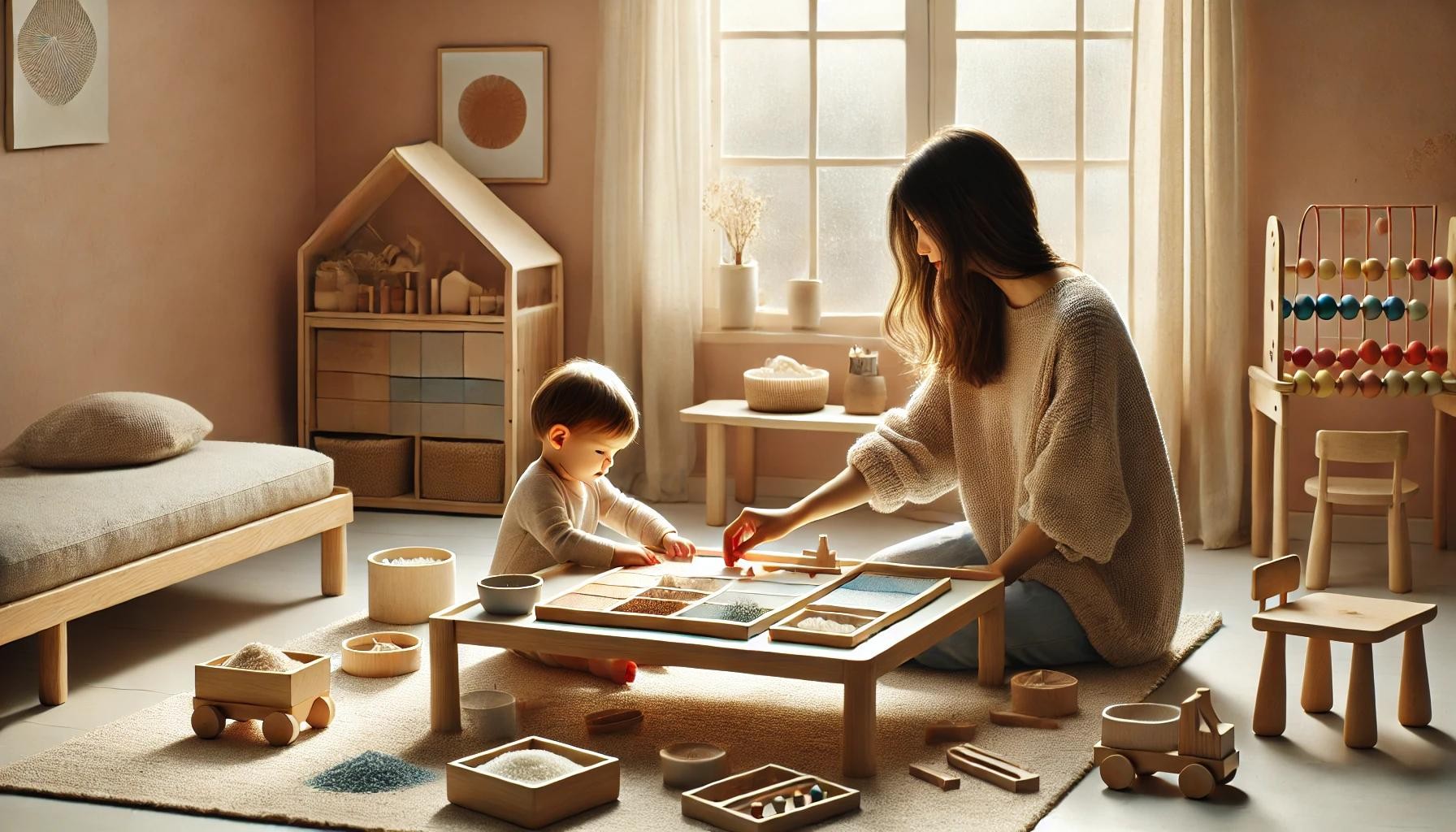As parents, we all want the best for our children. In their formative years, the choices we make regarding their...

What to Expect from a Montessori Sensory Workshop: A Parent's Guide
What is a Montessori Sensory Workshop?
A Montessori sensory workshop is an interactive, child-centered environment where children explore activities that stimulate their senses. The five senses — touch, sight, hearing, taste, and smell — play a crucial role in how young children learn and understand the world. In a sensory workshop, children are exposed to carefully designed materials and activities that encourage them to use their senses to observe, categorize, and make connections.
Montessori educators emphasize the importance of self-directed learning. This means your child will have the freedom to choose activities that pique their interest while being guided by trained facilitators who understand how to foster curiosity and independence.
What Will Your Child Do in the Workshop?
Here are some of the engaging activities your child may encounter:
-
Sensory Bins: These are containers filled with materials such as sand, rice, or water beads, along with small objects like spoons or shapes. Children use these to practice fine motor skills, explore textures, and develop hand-eye coordination.
-
Sound Matching Games: Your child might shake small containers filled with different materials (like beans, rice, or bells) and try to match the sounds they make.
-
Color Sorting and Matching: Using color tablets, objects, or fabric swatches, children learn to identify, sort, and categorize colors, which builds visual discrimination skills.
-
Texture Exploration: Activities with materials such as smooth stones, rough sandpaper, or soft fabric allow children to develop tactile awareness.
-
Practical Life Skills: Pouring water, scooping beans, or transferring objects with tweezers may seem simple, but these activities build focus, coordination, and independence.
What Are the Benefits for Your Child?
Montessori sensory workshops are not just fun; they are packed with developmental benefits. Here are a few key advantages:
-
Enhanced Fine Motor Skills: Activities like pouring, sorting, and transferring help strengthen the muscles in your child’s hands and fingers, laying the foundation for skills like writing.
-
Improved Focus and Concentration: By engaging in self-directed, purposeful activities, children learn to focus on tasks and complete them at their own pace.
-
Language Development: Many sensory activities introduce new vocabulary, such as “smooth,” “rough,” “loud,” or “soft,” helping children describe their experiences.
-
Critical Thinking and Problem-Solving: Through exploration, children learn how to compare, contrast, and draw conclusions about the materials they interact with.
-
Fostering Independence: Montessori’s child-centered approach encourages kids to make choices and complete tasks on their own, boosting their confidence and autonomy.
What Should Parents Expect?
-
A Calm, Nurturing Environment: Montessori sensory workshops are intentionally designed to be peaceful and orderly, with everything arranged to invite exploration without overwhelming the senses.
-
Active Participation: Parents are often encouraged to observe or even participate in some activities, allowing you to learn more about your child’s interests and how they interact with their environment.
-
Guidance from Trained Facilitators: Montessori-trained educators will be present to guide your child, offer assistance when needed, and ensure they’re engaging with the materials in meaningful ways.
-
A Screen-Free Zone: Unlike some early childhood activities, Montessori workshops prioritize hands-on, real-world experiences over digital engagement.
Tips for Parents New to Montessori Workshops
-
Come with an Open Mind: Allow your child to explore at their own pace. Avoid the urge to direct their activities — part of the magic of Montessori is letting children discover on their own.
-
Dress Comfortably: Children should wear comfortable clothing that allows them to move freely and engage in messy activities without worry.
-
Observe and Learn: Take the opportunity to observe how your child interacts with the materials and other children. This can offer valuable insights into their personality and learning style.
-
Encourage Exploration at Home: Bring some of the Montessori principles into your daily life. For example, create a small sensory bin at home or encourage your child to help with simple household tasks.
Why Montessori Sensory Workshops Are Worth It
A Montessori sensory workshop is more than just a class — it’s a gateway to a lifetime of curiosity and learning. By engaging your child’s senses in a structured yet flexible environment, these workshops lay the foundation for critical skills that will benefit them academically, socially, and emotionally.
As a parent, you’ll gain a deeper appreciation for your child’s unique abilities and interests while watching them thrive in an environment tailored to their developmental needs. Whether your goal is to introduce your child to a new learning experience or to complement their existing educational journey, a Montessori sensory workshop is an excellent choice.
Ready to take the plunge? Find a local Montessori center near you and give your child the gift of sensory exploration. You might just be amazed at what they discover!



Leave a comment